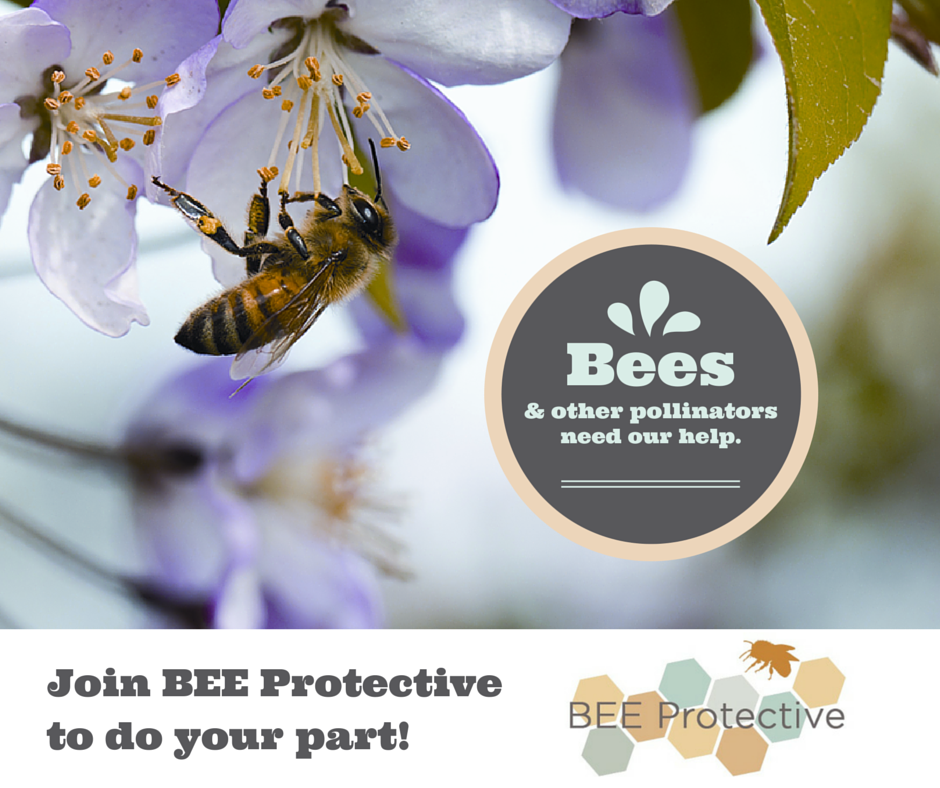28
Apr
Antioch College and UMD Pledge to Protect Pollinators
(Beyond Pesticides, April 28, 2016) This week, Antioch College in Yellow Springs, Ohio, became the third university to become a neonicotinoid-free campus. Antioch College gains recognition from the Beyond Pesticides’ and Center for Food Safety’s BEE Protective Campaign, which seeks to protect honey bees and other pollinators from harmful pesticides. Signing the BEE Protective resolution, Antioch signaled its continued commitment to using neonicotinoid-free insecticides on campus, making them one of the leading higher education institutions committed to the protection of pollinator species. In addition to joining the Bee Protective Campaign, the Village of Yellow Springs, where Antioch is located, is considering an organic land care policy, and Beyond Pesticides is working with the Village to assist with a transition to organic turf care.
 “At Antioch College, we have an opportunity, and an urgency, to be change leaders in turning around pollinator decline, exposing misleading research and recognizing the importance of inter-species cooperation. To paraphrase our president Thomas Manley, ”˜If we are not leaders in discovering and implementing new and better ways of living , then what is the point?’” said Beth Bridgeman, the faculty member who drove the effort to ban neonicotinoids from campus. Antioch students and staff maintain about five acres of farmland that provide produce, eggs, pastured lamb, and culinary and tea herbs for the campus dining halls.
“At Antioch College, we have an opportunity, and an urgency, to be change leaders in turning around pollinator decline, exposing misleading research and recognizing the importance of inter-species cooperation. To paraphrase our president Thomas Manley, ”˜If we are not leaders in discovering and implementing new and better ways of living , then what is the point?’” said Beth Bridgeman, the faculty member who drove the effort to ban neonicotinoids from campus. Antioch students and staff maintain about five acres of farmland that provide produce, eggs, pastured lamb, and culinary and tea herbs for the campus dining halls.
Close behind Antioch College is the University of Maryland, whose Student Government Association (SGA) recently passed a resolution to become BEE Protective Ambassadors. Led by Errin Saunders, a Student Sustainability Committee member, SGA has started an education campaign to not only warns students about the bee-harming insecticides used on campus, but all pesticides toxic to humans. With the ultimate goal of obtaining a campus-wide pledge to go neonic-free, student government members are gaining support by educating fellow students at campus events, like UMD Green Week.
The elimination of neonicotinoid pesticides on campus-wide scale is an exemplary move by Antioch College to protect pollinators. Neonicotinoids are a group of chemicals whose use has been linked to pollinator declines. They can kill and impair the survival of pollinators like honey bees, wild bees, and butterflies, as well as impact beneficial insects, birds, and other non-insect species. Coinciding with their introduction to the market based on conditional registration from the Environmental Protection Agency (EPA), beekeepers have reported unprecedented losses, as high as 90 percent, in hives across the country. Since these organisms deliver essential services, like the pollination of a third of food eaten by the public, protecting their existence by eliminating neonicotinoids is a key tenet of the BEE Protective pledge.
The BEE Protective Ambassador project taps into enthusiastic environmental activists on college campuses throughout the country wishing to make a positive impact on the health of local pollinators and other wildlife. By creating meaningful change at the University level, Ambassadors gain important experience in environmental advocacy, which will undoubtedly expand and grow as students graduate from college and continue to be environmental activists while moving through life.
Take Action: Beyond Pesticides provides campus organizations with all of the educational materials needed to advance meaningful and significant change in communities. If you know of an individual or campus organization that would be interested in taking part in this movement to protect pollinators and save our bees, please urge them to become a “BEE Protective Ambassador,” and ask them to sign the pledge as soon as possible. Resources and a step by step guide will then be sent out immediately following sign-up.
BEE Protective is a national campaign established by Beyond Pesticides and Center for Food Safety, and works with municipalities, campuses, and homeowners to adopt policies that protect pollinators from bee-toxic pesticides. For more information about the campaign, visit www.beeprotective.org.
All unattributed positions and opinions in this piece are those of Beyond Pesticides.
Source: Center for Food Safety










